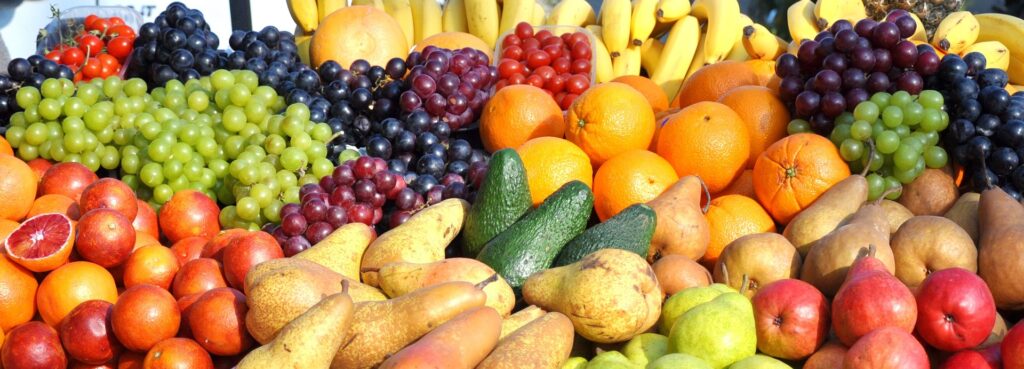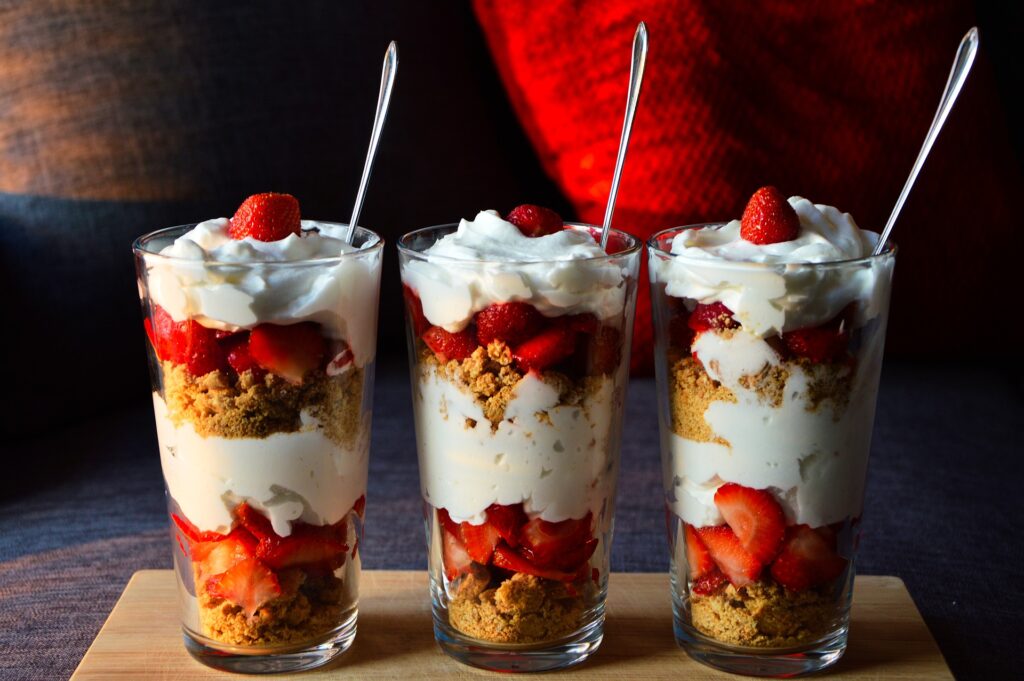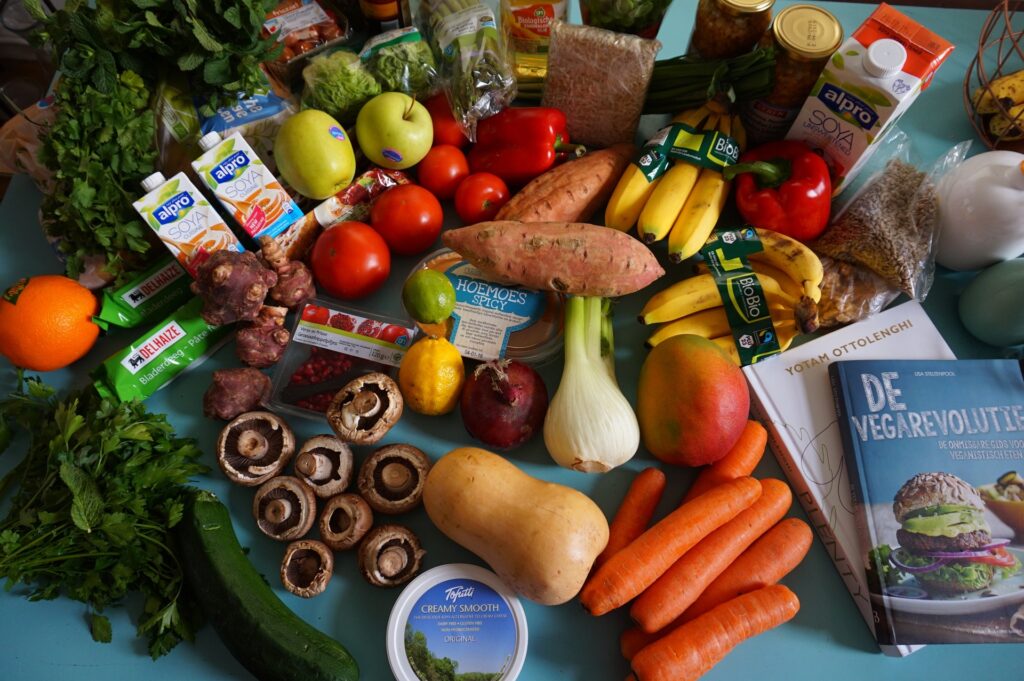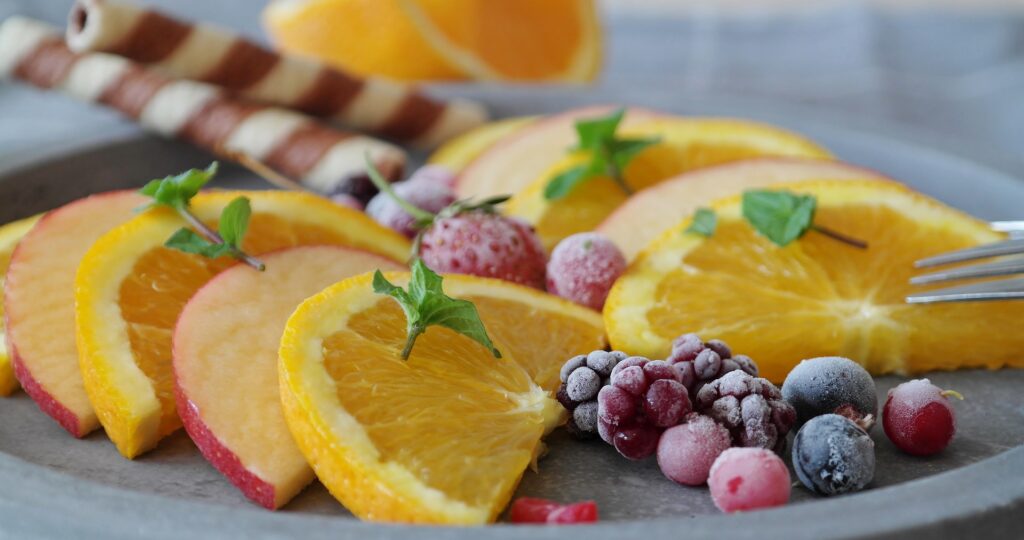What your child eats today can tremendously affect their health throughout adulthood and older age.
Including a balanced diet rich in nutrients can affect their overall growth and development, so always think before serving junk food to your kids.
Why do your kids need a balanced diet?
In general, a balanced diet includes foods rich in vitamins, minerals, and other nutrients required for the healthy growth of the body. By giving your kids a healthy diet, you ensure that they are getting all sorts of nutrients and minerals, beneficial for their physical, mental, and emotional wellbeing.
According to some research, a child whose diet is not nutritious suffers from health and development issues from an early age.

How to encourage your child to eat healthily?
Having kids at home means the extra responsibility of feeding them right. Here are a few tips to induce healthy eating habits in your kids.
Add different color fruit and veggies to kid’s platter-
Kids do not appreciate boring food so try to add colorful vegetables and fruits to their platter. A colorful meal looks more attractive, and also a combination of veggies and fruits ensures a high nutrition intake. Kids love new things, and different types of colors attract them. The rainbow diet includes colorful vegetables in yellow, green, blue, purple, white, and red. Experts suggest eating rainbow food because it has a comparatively high amount of nutrients.
Colorful plants have different types of phytonutrients and pigments which give them color. These phytonutrients support eye health, improve brain function, and reduce the risk of cancer and heart issues.

Get kids involved in health-related talks-
Discuss planting, farming, and other food sources. It will automatically increase their interest in healthy eating. Although, when you eat right your kids are likely to eat right too because they do notice everything you do, your habits what you eat, and what you say, so introduce and talk about different healthy food items to your kids, talk about their benefits. In this way, kids will effectively understand healthy eating.

Make eating fun and interesting
Give your kids lots of food choices, and experiment with vegetables and fruits. Serve them a variety of vegetable and fruit options and let them decide what they want to eat. However, Try to keep food simple and kid-friendly like vegetable pizza, whole wheat Maggie, or pasta with lots of vegetables, fruit, etc.

Make healthy snacks-
Kids love snacks food, so always carry healthy snacks with you for in-house or traveling. Pack healthy snacks and limit unnecessary junk food eating of your kids. Moreover, always make a prior food guide and plan accordingly. This prior preparation improves your kids ‘ eating habits and gives them nutrition beneficial for their health.

DO’S AND DONT’S
- Give 5 servings of meals, 3 big meals, and 2 small ones.
- Include nuts and seeds in their snacks or meal like chia seeds, figs, pumpkin seeds, sunflower seeds, almonds, and walnut.
- Include a high protein diet because during the childhood phase cells grow rapidly
- Pay attention to portion size.
- Prepare home-cooked meals.
- Avoid sugary or carbonated drinks, instead have fruit juices, buttermilk, sugarcane, and low-fat milk.
- Include whole grains.
- Restrict high calories in food and include all food groups.
- Hydration is a must for kids.
- Give at least 1 or 2 servings of fruit and vegetable daily.
- Encourage your child to do physical activities for at least 45minutes a day. Exercise and meditation play a significant role in the growth and overall well-being of the human body, so it is necessary to include any physical activity.

Nutrition guide for kids
Your children should include a wide variety of nutritious food for their proper growth and development. Your kid’s nutritional essentials:
- Vitamins and minerals- are crucial for the healthy functioning of the body. Deficiency in particular vitamins and minerals leads to severe health effects such as anemia, thyroid dysfunction, night blindness, rickets, improper brain development, and growth issue. Make sure your child is taking enough fruits and vegetables in the diet.
- Vitamin and minerals source- Fish, red meat, green vegetables, citrus fruits, milk, beetroot, and pomegranates
- Carbohydrates and fats- carbs are the major source of energy in the human body and work as fuel in our body to keep us energetic throughout the day. While, fat increases a child’s brain development, cognitive development, and eye functioning. However, our body absorbs essential vitamins such as A, D, E, and K in the presence of fat, which means they are fat-soluble vitamins. Our body needs fat for the absorption of these vitamins.
- Carbohydrate food source- Milk, yogurt, potatoes, sweet potatoes, berries, cereals, whole grains, vegetables, and rice
- Fat source- fish, eggs, dark chocolate, walnuts, soybeans, linseed oil, cheese, chia seeds, and olive oil.
- Protein- during the childhood phase, protein is necessary for the growth and repair process of the body. Protein supports physical activity, builds muscle, and improves immunity and bone health. Furthermore, protein works as hormones, immune molecules, cellular messengers, and enzymes. Experts advise including at least one protein-rich food in every meal for healthy growth.
- Protein source- Meat, amaranth, quinoa, soy, beans, seafood, lentils, eggs, nuts, and seeds.
- Calcium and vitamin D- According to experts, there is significant calcium deposition during the childhood phase. Thus, include at least 1 serving of milk or calcium-rich food in the diet.
- Vitamin D rich food- soy milk, tofu, almond milk, milk, fish, mushroom, fortified milk

Food choice:
- Dark green vegetables (broccoli, beans, spinach, lettuce, zucchini)
- A starchy food (potatoes, sweet potatoes, butternut squash)
- Beans and peas (chickpeas, lentils, beans, split peas, soy, kidney beans)
- Citrus fruit (orange, sweet lime, blueberry, lemon)
- Antioxidant-rich food (beetroots, mangoes, watermelon, muskmelon, bell peppers)
- Whole grains (whole wheat, oatmeal, brown rice, barley, ragi, jau, sattu)
- Milk (fat-free dairy products such as milk, yogurt, soya milk, buttermilk, almond milk, and cheese



